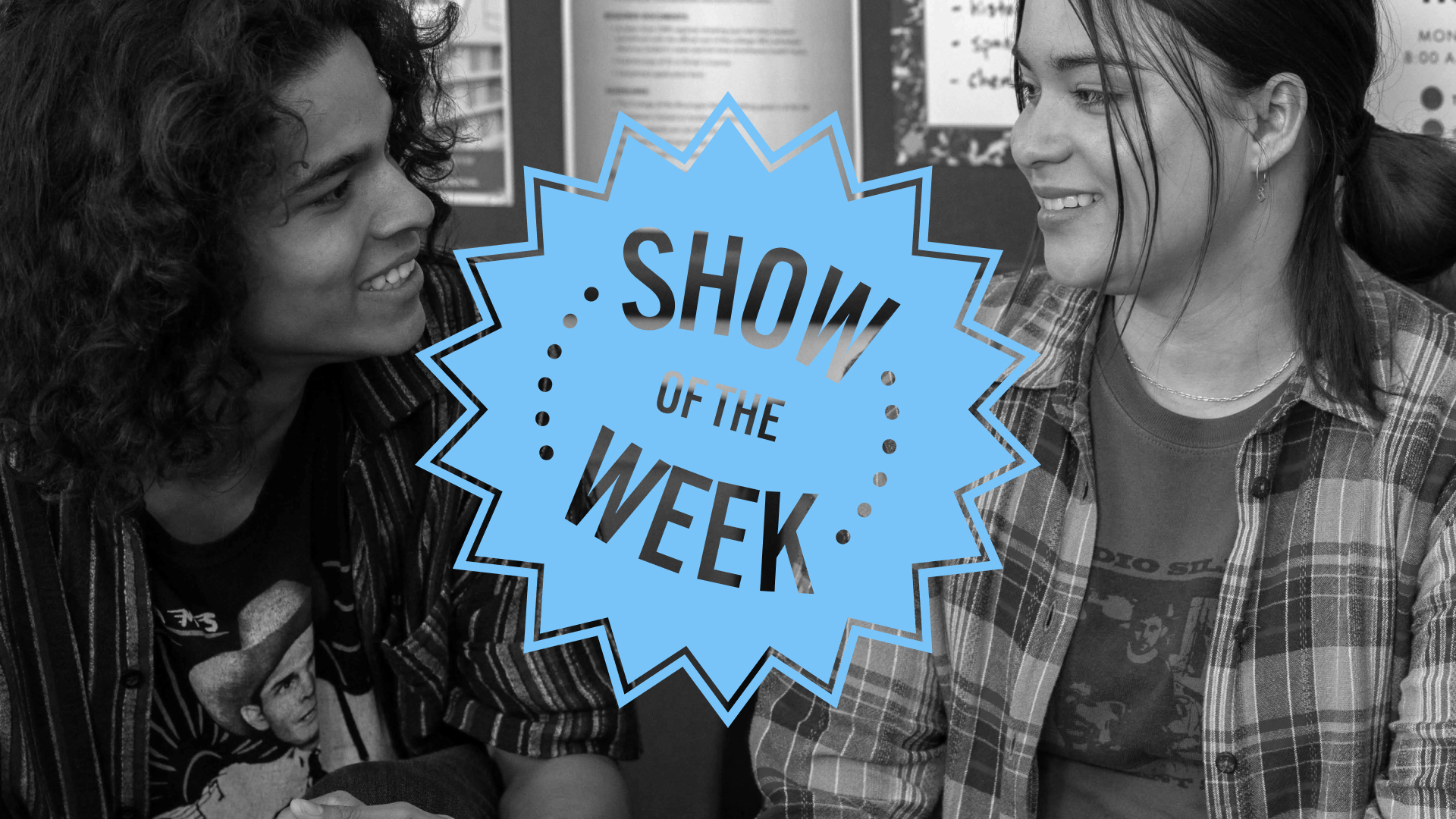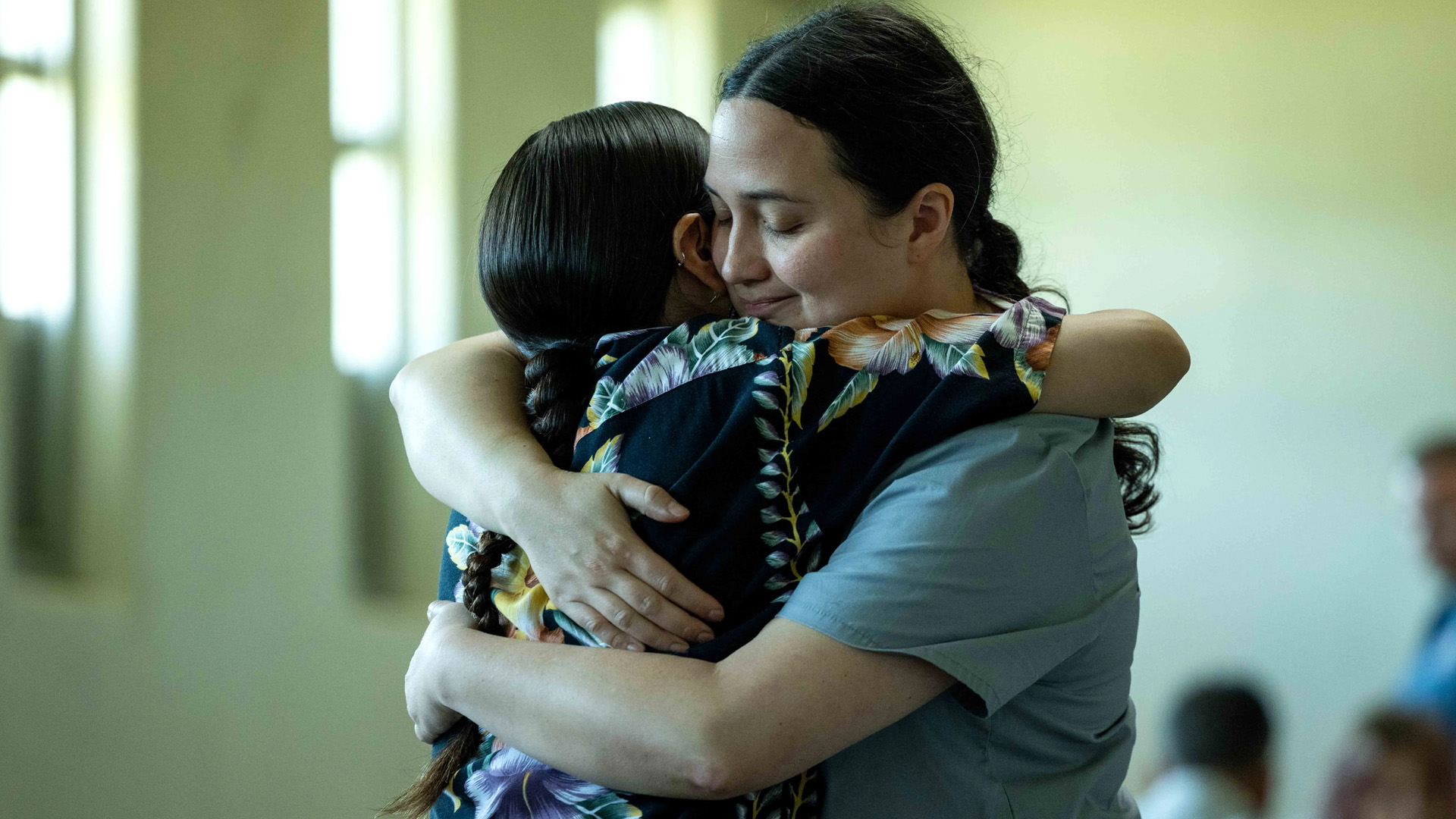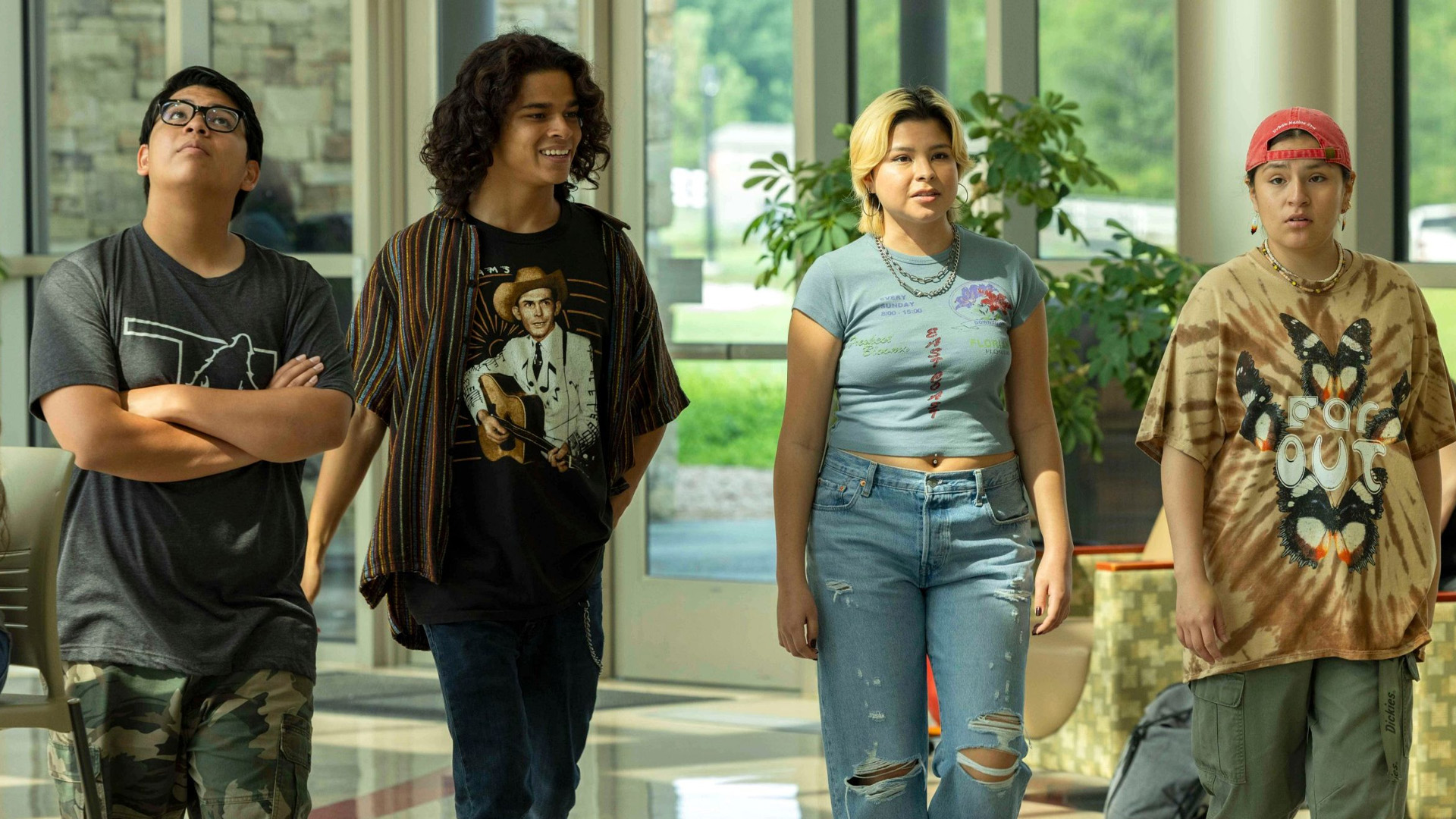It feels a little too soon to say goodbye to Reservation Dogs

We’re all drowning in content—so it’s time to highlight the best. In her column, published every Friday, critic Clarisse Loughrey recommends a new show to watch. This week: The final season of Reservation Dogs, one of the richest, most beautiful pieces of storytelling currently on television.
It feels a little too soon to say goodbye to Reservation Dogs. But, if we must, let us at least do it with Lily Gladstone. The (future Oscar-winning) star of Killers of the Flower Moon reprises her role as Hokti Sampson, Willie Jack’s (Paulina Alexis) aunt, in the show’s third and final season. She’s incarcerated, and lonely, except for the spirit of her ancestor, Gram (Tafv Sampson), who sits on her cell’s basin and urges her not to resign herself to misery.

But, when Willie Jack comes to her in a crisis, with the terrible news of a death in their community of Okern, Oklahoma (a fictionalised version of Okmulgee), she rallies. She tells Willie Jack that people may die, that good things may come to an end, but only in a certain, narrow way of thinking. We shape each other in small, but significant ways, and it’s through those memories that we live on.
In a dreamily optimistic way, I believe that a piece of Reservation Dogs will live on in the many, many Indigenous-written, directed, and starring projects still to come. Because there has to be a day, sooner or later, when Native storytellers are given their rightful platform. And Reservation Dogs will have counted as one step towards that inevitability.
The series, created by Sterlin Harjo and Taika Waititi, had a fairly conventional initial pitch. A bunch of teens—Willie Jack, Elora (Devery Jacobs), Bear (D’Pharaoh Woon-A-Tai), and Cheese (Lane Factor)—think they’re gangsters, only to realise they’re anything but. As it turns out, they can’t even successfully pilfer a delivery truck full of spicy crisps from the local junkyard.
But, from there, it’s blossomed into one of the richest, most beautiful pieces of storytelling currently on television. It’s a show that’s able to contend with a seemingly infinite amount of thoughts, that speaks directly—without compromise—to a Native audience, but is also simultaneously aware of its non-Native audience, and how the experience of watching these ordinary lives unfold requires conscious and unconscious packing of a lifetime’s indoctrination by white America.
Reservation Dogs rightly avoids any single, unified vision of Native culture. In fact, it does almost the opposite: Harjo and his team always leap at the opportunity for complexity, conflict, and nuance. At times, it basically becomes a series about internal division: of those who stayed at home and those who left for the city; of those who crave a parent’s gentle, guiding hand, and those who’ve learned to live without it; of those who wear generational trauma like a badge of honour, and those who’d do anything to bury their identity deep into the ground.
Some of the best episodes in the series have drifted away from the main crew, in order to delve into the lives of the community’s mothers, authority figures, and random oddballs. In season three, we finally learn the true origins of the Deer Lady (Kaniehtiio Horn), a vengeful spirit with cloven hooves instead of stilettos. In an episode directed by Danis Goulet, and given a touch of vintage horror, she’s revealed to be the product of the Indian boarding school system and its horrific abuses.

Reservation Dogs’s final few episodes cycle back to the very start. Our crew attempt another Tarantino-style heist, while a sudden death echoes how the series first began, with these kids still reeling from the suicide of one of their members, Daniel (Dalton Cramer). But Elora, Bear, Willie Jack, and Cheese are so changed now. Instead of running wildly in the opposite direction of their problems, and dreaming of an escape from the city that’s repaid them in nothing but cruelty, they come together for their community and root themselves back in their own history.
It’s so rare for a comedy series to actually commit to the full arc of a person’s emotional growth. In fact, it was barely a month ago that I was arguing how another Waititi-produced project, What We Do in the Shadows, requires consistency to survive. But, here, it seems it was better for Harjo to hit the self-destruct early on his show. Otherwise, we’d never have appreciated the ways Elora and Bear’s grief locked horns, battled it out, and then made slow, tentative peace.
Reservation Dogs may be no more, but the incredible work on display has already been carried forward in subsequent Native-led shows like Dark Winds. And, as Gladstone’s Hokti describes, those shows will in turn pass that legacy on to others, and on and on. Reservation Dogs has found its place in history.


















